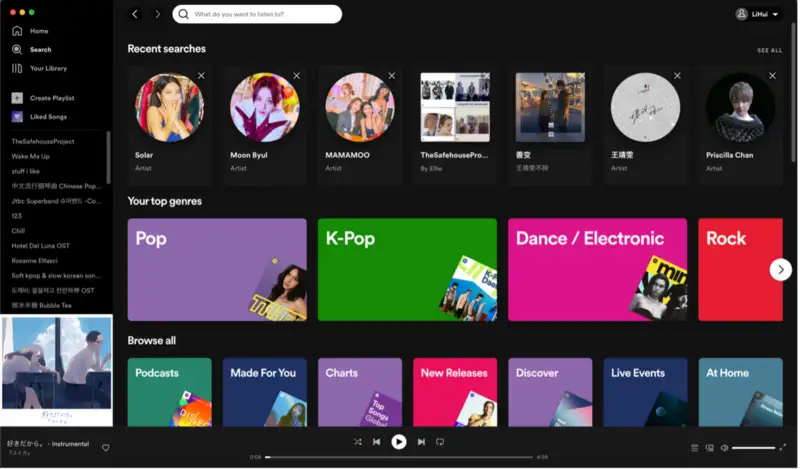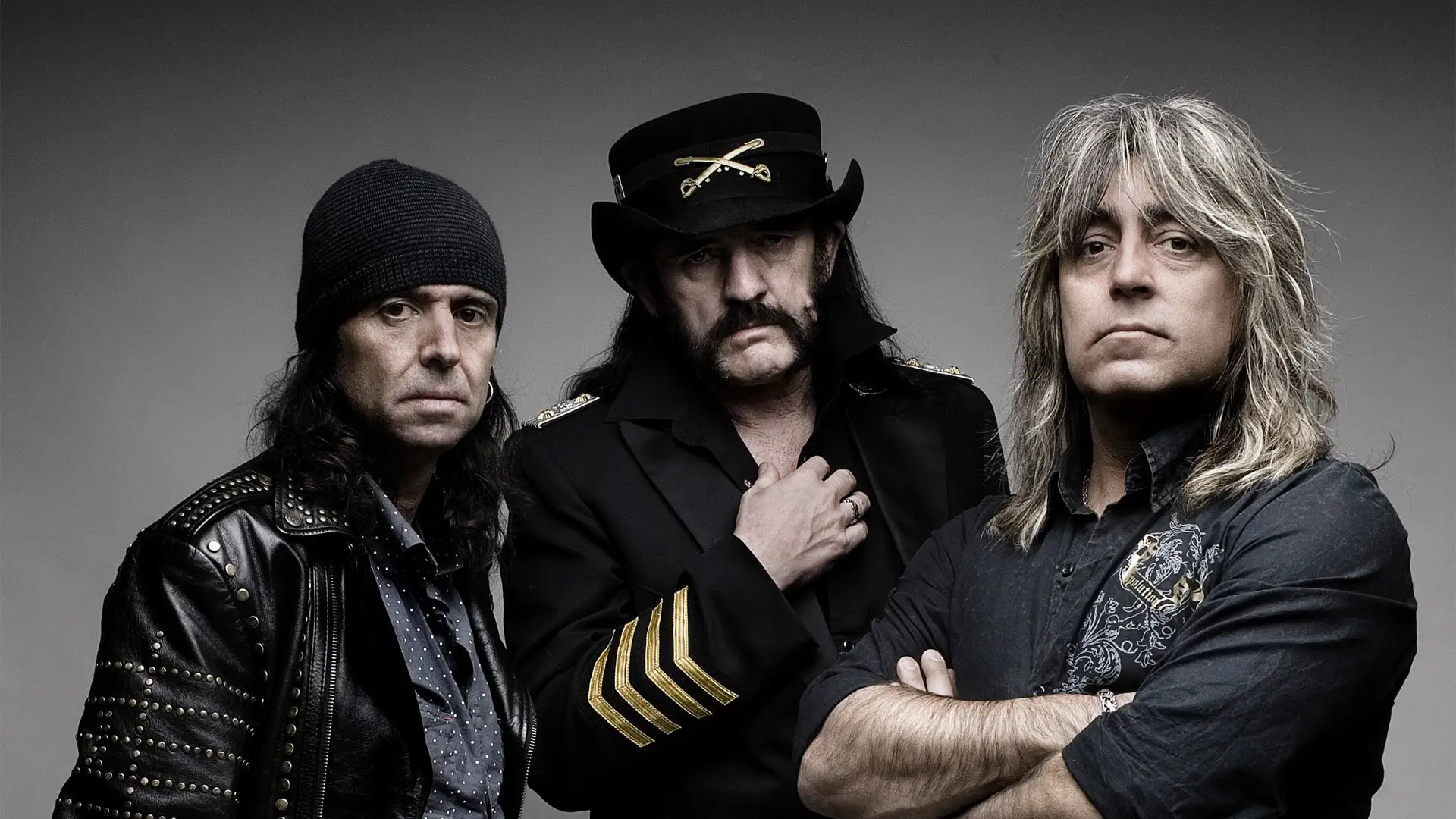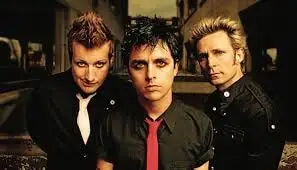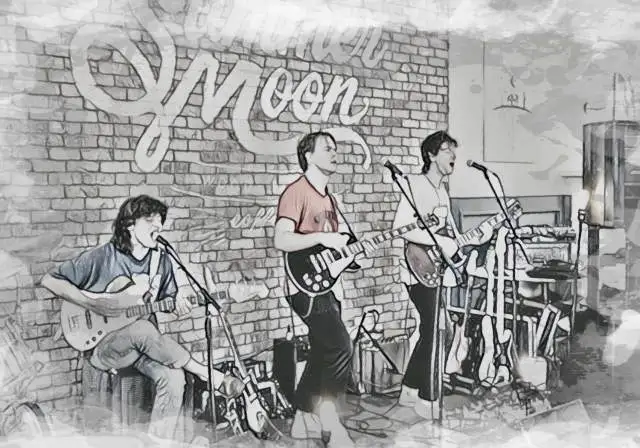In a perfect scenario, coming up with a band’s name should be the most effortless thing in the world, right? You just sit down with your bandmates, think about what defines you as a music project, and then come up with a name that represents those values.
Well, the reality is that most of the time, coming up with a name can generate the most heated arguments, and raise issues within the band that can affect the entire creative process.
Not only that! A catchy name that’s perfect for the genre can help a band achieve success, whereas an abstruse one can make a band remain anonymous even when they deserve to bask in the glory of their exceptional sound.
So what do you do when the band name doesn't come naturally? Luckily, over the decades, countless bands have used many ways to come up with good names for their projects, and today, we'll take a look at how to create a name you’ll be proud of even after your career skyrocketed.
What Makes a Band Name Good?
A good name is one that people will remember. This doesn’t necessarily mean that it has to be short or overly simple (see King Gizzard & The Lizard Wizard or Thee Silver Mt. Zion Memorial Orchestra), but it has to catch a listener’s attention and get an idea of the music you create.
Also, a good name is one that you and all your bandmates feel represents you and your music. There’s a lot of subjectivity involved in the process, but after decades of playing in bands, I noticed that the right name just sticks with the band, and all the people involved see it as a good presentation for the band.
So, in short, you need a name that's easy to remember, representative of your sound, and one that all bandmates will be happy to be represented by.
Does a cool band name define a band's identity? No, but it gives the impression of a project that is unique and ambitious, and can become the epitome for your successful musical career.
As you can see, the more one thinks about it, the more complex it becomes to come up with a great name! But don't worry. In the next section, we'll try to break it down a little more.
Coming Up with a Successful Band Name
If you're part of the lucky few who are part of a band that was born with a name, the idea of figuring out potential band names might sound strange to you at first. However, naming your band is almost like choosing a name for your child, or pet: whether it comes naturally or not, the name you choose will end up defining the relationship you have with that project, human being, or animal.
In the following section, we'll analyze the process of creating band names. This is something musicians should do whenever the band name doesn't come organically, but that doesn't mean that any good band should sit down and discuss the reasons behind their name.
Let me start by saying I'm not a fan of band name generators. I know that are some great artists who came up with their aliases using these tools (and we'll talk about them more later), yet I feel that the name should represent the band's identity, and I find it hard to believe that AI could come up with a perfect fit for your musical project.
Anyway, there's no golden rule here, so let's take a look at all the things you can do to create a good band name.
Bandstorming
A brainstorming session with all band members on board is a great place to start thinking about cool words to use for your music project. So, get everyone together, order some takeaway pizza, grab pen and paper, and start asking yourselves:
- What genre do we play?
- Are there bands we’re inspired by? How are they called?
- Is there anything that connects all of you? It could be as simple as an inside joke or as deep as a way to approach creativity as a whole.
Remember that the best names often come from a collaborative process in which every member is involved. Make sure everyone is on the same page about what your music stands for, as well as any words, themes, or ideas you aim to express.
Do you want to use a single-word band name, two or more words, or a portmanteau technique, blending different words like Nickelback or Murderdolls? Often, choosing how the name should look before finalizing it can help to come up with something memorable.
Inspiration can come from a song title, your favorite bands, an experience all band members shared, or countless other situations. Once again, choosing a name for your band that sounds cool is also about getting to know better the people you play with, so do spend some time talking and learning more about what everyone involved in the project loves.
What Matters to You / What Makes You Unique
Ultimately, it all comes down to finding a name that’s in line with your values as an artist, and that sounds good to the entire group. Personally, I think that if the name comes out genuinely, and it’s not offensive in any way, listeners will pick up on that authenticity and appreciate it, regardless of its complexity.
Think about your identity as a band: what makes you unique? What do people think of your music, and how do you see yourself as part of the genre you're exploring? Spend some time thinking about your band using these terms, and the perfect name might come like a bolt from the blue.
While it's important to choose band names that are in line with the projects, it's also vital not to overthink it. If you and your bandmates are deeply involved in a creative endeavor, chances are that the band name will reveal itself sooner or later. So, do think about it, but also be patient!
Use Spotify and Vocabulary for Inspiration

There are a few ways to use Spotify (or any other streaming platform, for that matter) to choose your band name. First of all, it helps you understand whether your potential name has already been used, which is literally the first thing you should check as soon as you come up with it.
Lyrics and song names can also be a great source of inspiration, especially if all bandmates love a special band, album, or song. Spotify allows you to read the lyrics of most songs, which is great if you’re looking for names that remind of a certain track or album.
You can also explore how bands name themselves within the genre you're playing in. For instance, if there's a band you like, you can go to Spotify and scroll down to the "Fans also like” section to see if there are common traits between these similar projects.
Bear in mind that, while you want to highlight that you're part of a certain scene, you also want to distinguish yourself from bands that might sound similar to you.
Name’s Availability
I can’t stress enough the importance of checking the availability of a band name before you go live with it. If there's a band called in the same way, this might cause unnecessary confusion, but it could also end up with some legal issues along the line.
The United States Patent and Trademark Office allows you to check registered names and avoid unnecessary troubles. Also, look into domain names so that you’ll be able to get a domain once your band starts growing.
Finally, confirm that your chosen name hasn’t been used on major social media platforms or taken by other bands in search engines. Here's a personal story: my alias as an ambient composer used to be the username of a popular online gamer when I first started using it, back in 2011. I had no idea, and luckily, this never caused any issues on my end. But this should give you an idea of how important it is to spend some time investigating every corner of the internet, before confirming a name.
A way to avoid copying someone else's band name is to use multiple words, but that comes with complications: often, the more words band names have, the harder it becomes to remember them. Finding a balance between uniqueness and memorability is all there is to it.
Make Sure It’s Future-proofed
While it’s hard to predict how a band name will age, there are certain things you can do to make your name adaptable and timeless. For instance, you can avoid naming it after current trends or recent facts, to ensure people will recognize the reference in your name even decades in the future.
Also, pick something that can grow with you. A silly joke might be a great name for a teenage band, but it might not sound as cool when you're well in your forties! Choose something you'll potentially be happy with for decades.
But then again, Green Day chose a name that describes a day spent smoking weed, which kind of proves me wrong!
Know the Genre
It should be obvious, but knowing your genre is crucial if you want to attract a like-minded audience. If you’re creating a name for a metal band, you should use something that sounds strong, dark, or dramatic. For a pop band, something catchy and bright usually works best.
There are many bands, as well as independent or "bedroom" producers, who purposely misspell their names, which makes them difficult to find online but adds an aura of mystery to their artistry.
These are mere suggestions, and not rules set in stone. Creating a contrast between your name and the genre you’re in can create an interesting juxtaposition. But make sure you test it with people who like your music to ensure the name doesn't confuse or alienate listeners.
Make It Memorable
In general, short names, be them one-word (Muse) or two-words (Black Sabbath), work best because they’re easy for audiences to remember, but if a phrase or a few words feel right to you, don’t shy away from that!
Names that are easily connected to common facts or knowledge can help people memorize them. Also, don’t forget that the name should be easy to pronounce, and not let people be confused as to how they should call your band when talking about music with their friends.
What About Online Name Generators?
We all know that both Post Malone and Childish Gambino came up with their artistic names with the help of online band name generators. Does that mean you should do the same for your project? In my opinion, no.
While these tools can help you if you feel stuck, relying on artificial intelligence to come up with a name for your artistry doesn’t feel right to me. If you want to give them a try, use AI tools to give you a few options you can work on and adjust to make yours.
Once again, coming up with a name for your project should be a natural process, but if you think that a band name generator can help you get your artistic name right, then give it a go.
The Story Behind the Name
A name with a story behind it is something that will make people interested in and talk about your band.
Think about the legendary heavy metal band Iron Maiden. Bassist Steve Harris was inspired by a film adaptation of “The Man in the Iron Mask," which featured a seven-foot-tall metal sarcophagus lined with spikes inside called an “iron maiden.”
Or again, Grohl’s Foo Fighters. The term “Foo fighter” became popular within the U.S. Air Force during World War II to describe unidentified flying objects before being replaced by “UFO.” While recording the band's first album solo, all by himself, Dave Grohl was going through a UFO obsession, and chose "Foo Fighters" to highlight that he envisioned the project to become more of a collective effort.
Sometimes, it's the story that matters the most. When you hear how a band was formed, you want to hear a real story that talks about struggles and successes, coincidences, and unique opportunities. Similarly, a band name should mean something to those who chose it, and resonate with the people who listen to their music. So, don't settle for the first thing that comes to your mind!
Feedback From Friends and Fans
After you choose the name, try to get some feedback from your friends, fans, or fellow musicians: people you trust and will say it to your face if it sucks. Plus, an outsider’s perspective on your stage name can help you understand if it feels like the right fit for the audience.
This can sometimes lead to the painful process of renaming your band. This can happen for various reasons, but regardless of why you have to do it, remember that the audience's feedback counts a lot, even when it comes to your band name, and has a great impact on how your project is perceived.
While you should listen to those around you and appreciate honest feedback, don't let that refrain you if you feel that you found a band name that perfectly represents your project. After all, you're making music for yourself, first and foremost, so keep that in mind, while looking for a name that you'll love and your audience will appreciate.
How to NOT Choose Your Band’s Name
There are countless ways to find a good name, and in principle, there are no “wrong” band names. However, there are certain things you should avoid if you want to find a band name that’ll work for your listeners.
All in all, you want to make it easy for people to remember your band but also make it unique and personal. Think about the bands you love, the story behind their names, and try to recreate that sense of excitement and belonging that they probably felt when they first started playing. That's precisely the mental process you should undertake when choosing a name for a creative project.
Also, think about how you evaluate a band's name, as a music fan or concert-goer. Try to imagine what you like about certain names, and try to recreate that feeling when creating one for your own music project.
All in all, overly complicated, hard-to-pronounce names can make it hard for people to remember your name. Plus, being too cryptic might make listeners think you’re cocky! Similarly, obscure references or local slang can confuse people and make them wonder if you were high when you came up with it.
That said, the best is always to let your instinct guide you. If an absurd name feels right to you, maybe it's the right one for the project! After all, Genesis P-Orridge had a great career despite a less-than-glamorous artistic name.
Once again, choose a name, tell it to a group of friends and people, and see if they feel like it represents you. And, most of all, don't let a random name generator define your music career!
Remember: You Can Always Change It
If after trying your new band name at a gig you see the audience confused and unimpressed, remember that you can always change it.
Prince changed his stage name to a symbol (known as the “love symbol”), Deep Purple were initially called Episode Six, and The Beatles were the Silver Beatles and The Quarrymen before that. No band name is set in stone, and there’s always a way to change and adapt it to new circumstances.
Changing a name is something many bands do when their lineup changes. If one or more players leave the band, those who are left feel the need to have a fresh start, and there's no better way to do it than changing your band name.
Some bands want to change their names because they have evolved as human beings and want this change to be reflected in their projects' names. Whichever the reason, changing a band name is possible and has been done countless times by bands big and small.
Examples of Great Band Names
There's a story behind each great band, but often, there's also a story behind their names! Here are a few examples of legendary bands that came up with their names, whether through trial and error or simple intuitions.
Led Zeppelin
The legendary rock band owes its name to a joke by Keith Moon, The Who’s drummer, who said the band will “go down like a lead balloon." The band liked the idea of the balloon, and eventually settled for Led Zeppelin (“Led” because they were advised that the Americans may pronounce it as “leed.")
Joy Division
The name comes from House of Dolls, a controversial novel by Yehiel De-Nur describing prostitution wings in the Nazi concentration camps during the Second World War, called "joy divisions."
Pink Floyd
With their name, the iconic progressive rock band wanted to pay respects to two blues musicians, Pink Anderson and Floyd Council. Syd Barrett, whose record collection included works by both musicians, combined their first names to create the timeless moniker.
Linkin Park
Linkin Park first called themselves Xero, then Hybrid Theory (which would become the name of their debut album), and finally, opted for the name we all know.
It comes from Lincoln Park in Santa Monica, a place Chester Bennington used to drive by after rehearsals. They changed the spelling to Linkin to make the domain name more affordable, and the rest is history!
The Rolling Stones
The Rolling Stones owe their name to a Muddy Waters song, "Rollin' Stone." Apparently, the name came about in the early 1960s when Brian Jones was asked for the band's name while on a phone call with Jazz News newspaper, and Waters’ record was lying on the floor during the conversation.
Motörhead

Lemmy Kilmister composed the song "Motorhead" while still with the psych-rock band Hawkwind and before being dismissed in 1975 for "choosing the wrong type of drug." In fact, Motorhead is a slang term for an amphetamine user.
The umlaut in the band's name was inspired by Blue Öyster Cult, as Kilmister believed it gave the name a tougher aesthetic.
Metallica
The name "Metallica" was suggested to the band's drummer, Lars Ulrich, by Ron Quintana during a discussion about potential names for a heavy metal magazine. Lars and James loved it so much that they decided to use it for the band instead.
Slayer
Undecided between Slayer and Wings of Fire, the legendary thrash metal band opted for the name that was simpler and more aggressive. Luckily, I’d say!
Bad Religion
Bad Religion's name highlights their anti-authoritarian approach: a perfect representation of their societal dissent through their name as much as through a heavy punk sound.
Green Day

Originally called Sweet Children, the band renamed themselves Green Day, a Bay Area slang term for a day spent smoking marijuana.
Final Thoughts
I hope this guide helped clarify how to come up with a memorable and timeless name for your band.
The band names above are a great example of how successful bands found ways to choose names that defined their music and approach to artistry. While many had to think and revise their name along the way, there's one thing I'd like you to remember the most: the name of your band should be something that comes organically, the result of conversations and anecdotes that bandmates share over time.
There's a sense of camaraderie and common goals that defines ambitious creative projects. As a result, I encourage you to believe that the band name will come by itself, and when it does, you'll know it's the right one for your project.
Good luck, and stay creative!





